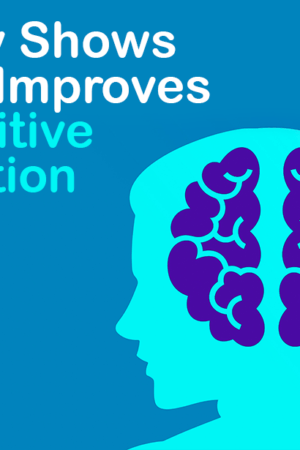Irritable bowel syndrome (IBS) is a very common intestinal disorder that’s highly prevalent in women. It’s characterized by bloating, abdominal pain, diarrhea, and constipation. Healthcare professionals aren’t in strong agreement regarding what causes IBS. An unhealthy gut flora may be the culprit, although there are multiple other theories. The ketogenic diet might be able to help.
Fewer Carbs, Fewer Trips to the Bathroom
A small study published in 2009 shows that a ketogenic diet improves symptoms and quality of life in diarrhea-predominant IBS patients. Seventeen patients enrolled in a 2-week study that tracked how a very low carb diet affected their IBS symptoms. The majority of the participants reported improvements in their symptoms in the 2-week time span. They reported decreased stool frequency, improved stool consistency from diarrheal to normal, and significantly less abdominal pain on the very low carb diet. For the participants who experienced a significant amelioration of symptoms, they all reported improved quality of life.1
Keto Restores Healthy Gut Flora
A study conducted last year (2017) reported that the ketogenic diet significantly improved gut microbiota in infants with epilepsy. After being on the ketogenic diet for only a week, 64 percent of epileptic infants showed an improvement in gut microbiota, which significantly improved their epilepsy symptoms.2
These findings are encouraging for people with IBS because the best way to fight digestive disorders is by restoring the health of the gut microbiome.
Even more encouraging, a study from 2013 found that an animal- and plant-based ketogenic diet drastically improved gut flora. The short-term consumption of animal- and plant-based foods increased the abundance of good microbiota in the gut. Researchers conclude that dietary fat, bile acids, and microorganisms that trigger IBS are significantly improved with a ketogenic diet.3, 4
What to Eat and What Not to Eat
You can reduce IBS symptoms by cutting fruits, dairy, wheat, and sweeteners. (No wonder the ketogenic diet helps!) The best way to improve symptoms of IBS is to eat foods that promote healthy gut flora.
Eat more of these foods:
- Vegetables: leafy greens, eggplants, green beans, zucchini, and squash
- Fruit: raspberries, blueberries, grapes, and pineapple
- Protein: lean beef, poultry, fish, eggs, and tofu
And avoid these foods:
- Dairy products
- Cruciferous vegetables such as cauliflower, cabbage, broccoli, and Brussels sprouts
- Legumes
- Fruit that contains fructose such as cherries, oranges, apples, and pears
- Wheat-based foods
- Fried foods
- Sugar
IBS and Lifestyle
Identify your worst IBS triggers by staying mindful of what you eat. Triggers may be different for individual patients with IBS. Pay attention to your caffeine and alcohol intake, and avoid food additives and processed foods.
Lifestyle can have a huge effect on the severity of IBS symptoms. If you suffer from anxiety, it’s likely that your anxiety exacerbates your IBS symptoms. Try yoga, talk therapy, or meditation.
Getting ample exercise can be tantamount to a healthy gut. Regular exercise keeps your digestive system moving. Exercise also manages stress and anxiety levels that contribute to the symptoms of IBS.
Check with your doctor about how you can make a ketogenic diet work for your IBS symptoms. A nutritionist or specialist in digestive disorders will be your best bet. And remember – a healthy gut lays the foundation for a healthy life.
NUTRITIONAL DISCLAIMER
The content on this website should not be taken as medical advice and you should ALWAYS consult with your doctor before starting any diet or exercise program. We provide nutritional data for our recipes as a courtesy to our readers. We use Total Keto Diet app software to calculate the nutrition and we remove fiber and sugar alcohols, like erythritol, from the total carbohydrate count to get to the net carb count, as they do not affect your blood glucose levels. You should independently calculate nutritional information on your own and not rely on our data. The website or content herein is not intended to cure, prevent, diagnose or treat any disease. This website shall not be liable for adverse reactions or any other outcome resulting from the use of recipes or recommendations on the Website or actions you take as a result. Any action you take is strictly at your own risk.
- A Ketogenic Pregnancy: Is It Safe? - June 20, 2018
- Perfect Keto Nut Butter is, Well, Perfect for Keto - May 14, 2018
- The Silicon Valley’s Favorite Diet? Brain-Boosting Keto - May 11, 2018




